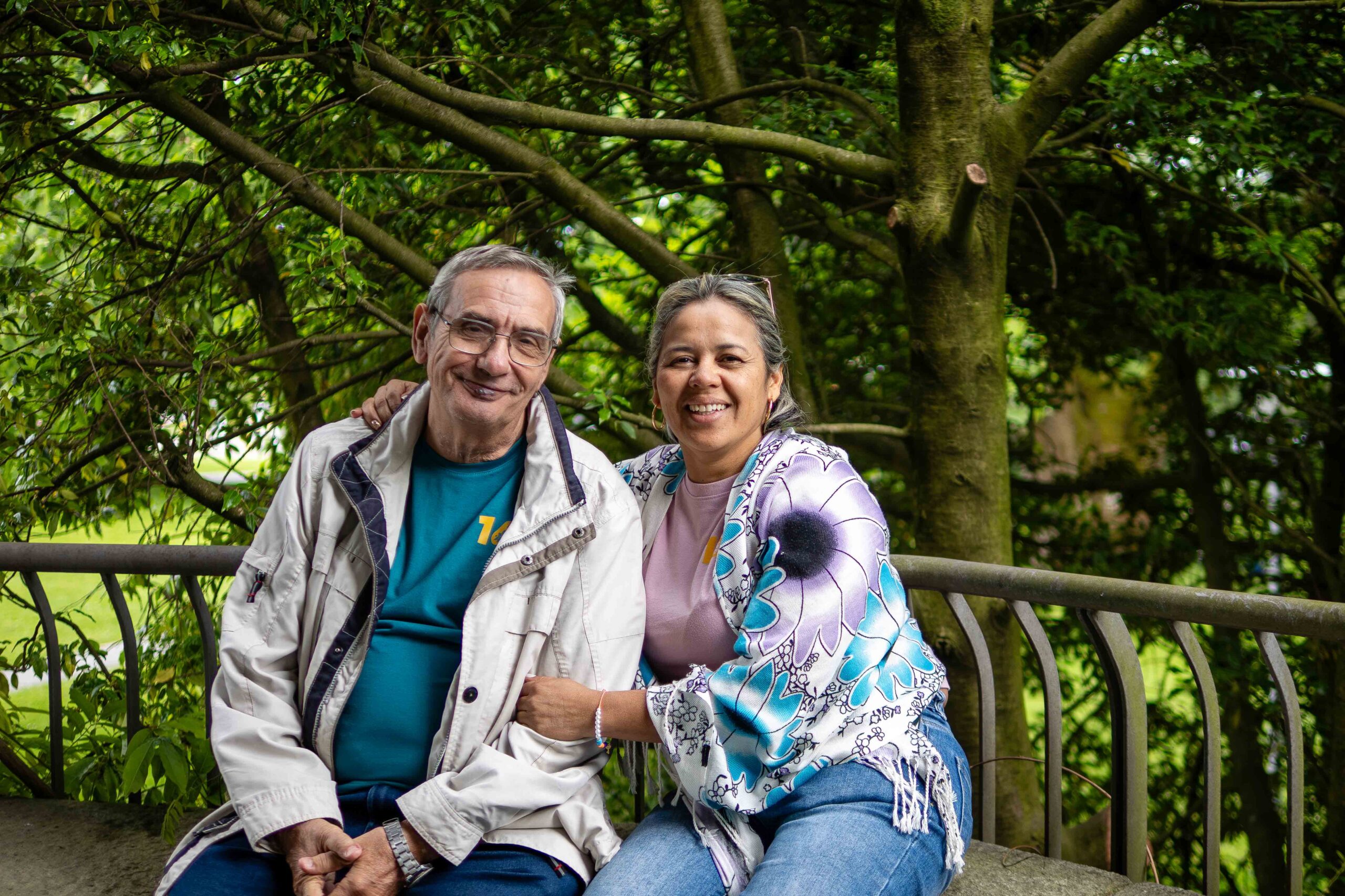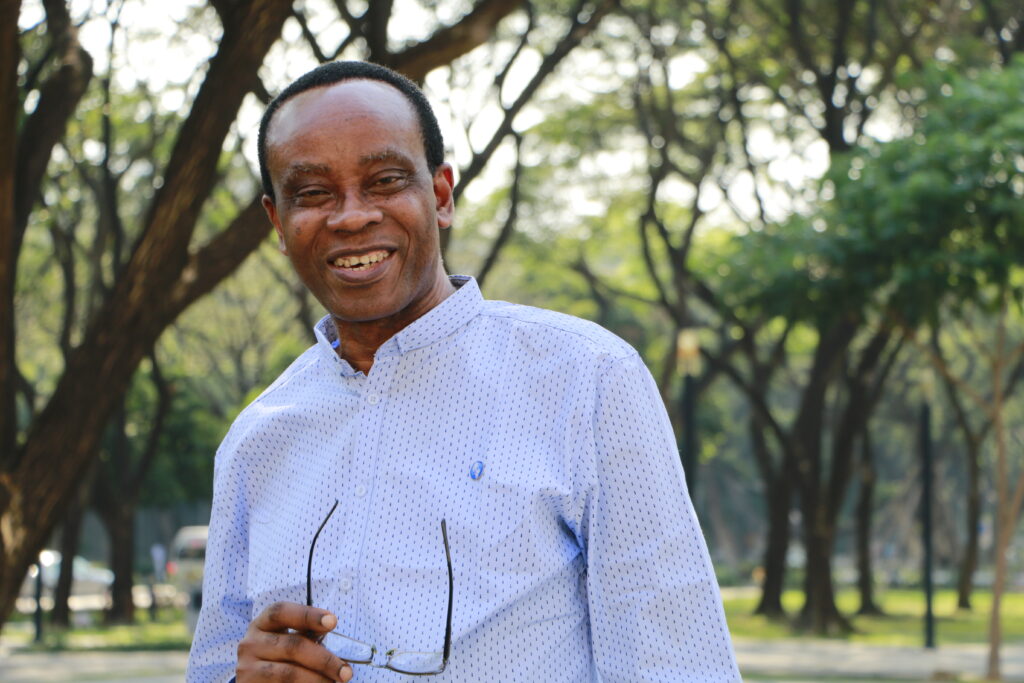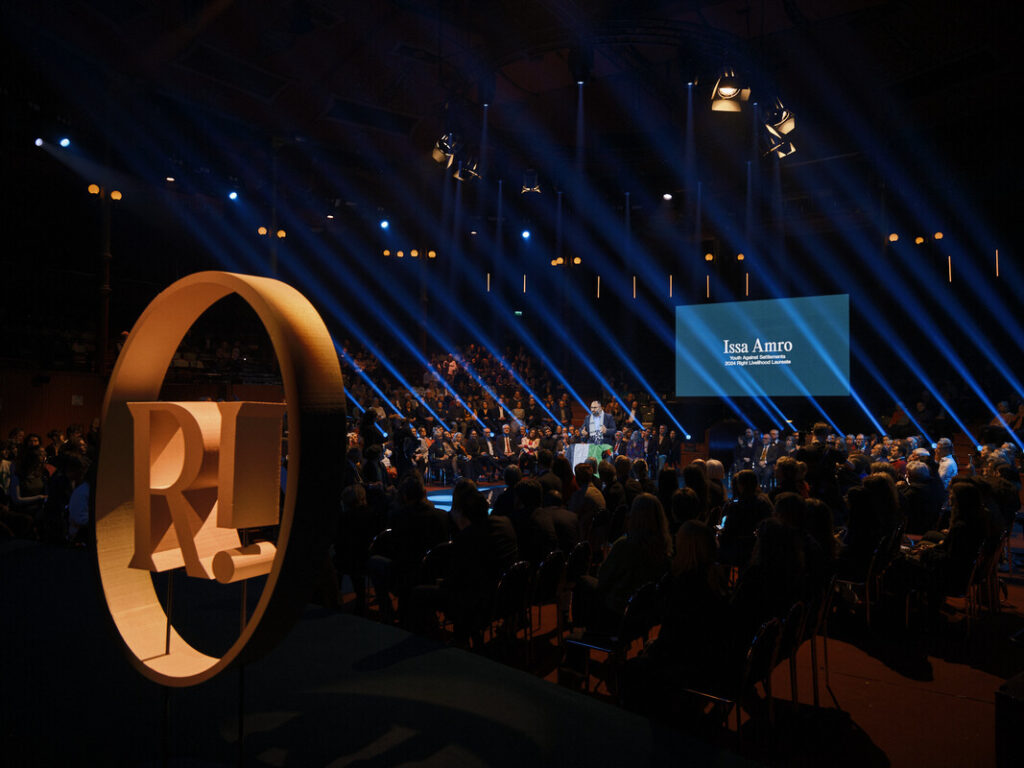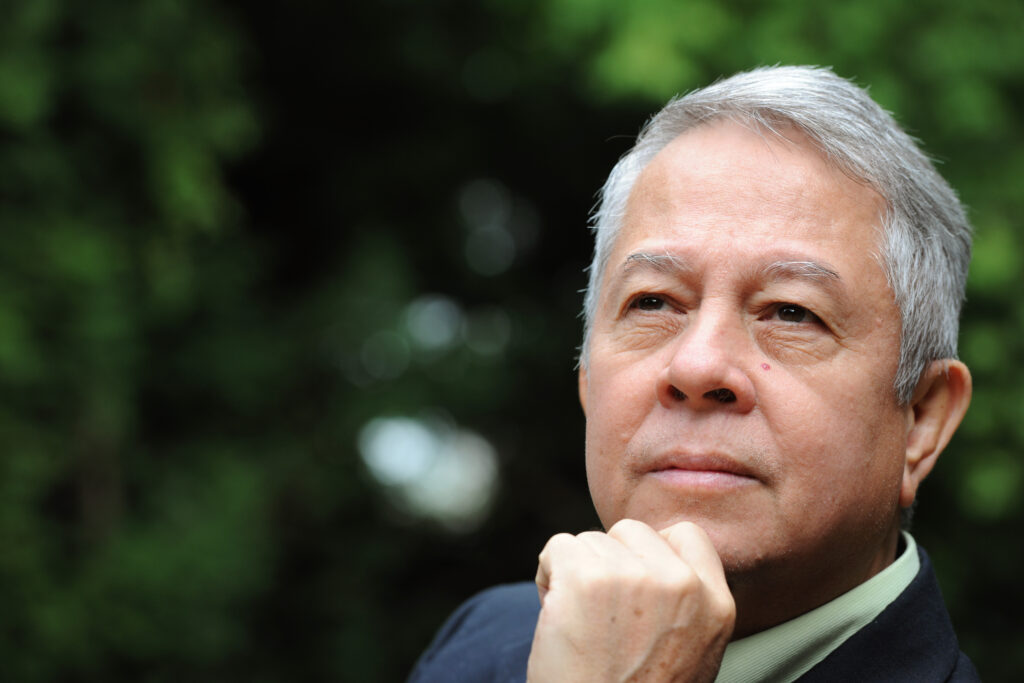With 2025 being the International Year of Cooperatives, members of the Right Livelihood Laureate organisation Cecosesola are travelling from Venezuela to Europe to share their “unlearning” process to question the mainstream premise “the more, the better” to replace it with the fairer mindset that”sufficient is enough”.
Needs in common, collective development, and sufficiency are daily working criteria for the Venezuelan network of cooperatives Cecosesola, which received the Right Livelihood Award in 2022. Two of its members, who are now taking part in a series of meetings in Europe, had a moment before travelling to talk to Right Livelihood. Sitting in the backyard of the Health Centre where they work, Yadira Oliveros and Georg Rath smiled patiently as they explained that they do not have bosses or hierarchies, nor do they vote to make decisions.
Cecosesola aims to build and strengthen relationships based on confidence, respect, common well-being and equal opportunities. How? By doing precisely this: sitting and talking. Just like at school, but differently. Cecosesola educates, although not in formal terms. Its members meet in rooms. There are no classes there, but meetings. They sit in circles and speak. No voice is more important than the others; every viewpoint is equally valid. These conversations are a fundamental part of what they call the educational process at the basis of the network. It involves unlearning power structures to promote horizontality and circularity.
While they devote a lot of time to discussion, Cecosesola members are hard at work at all times. A simultaneous snapshot of the work would show producers harvesting crops in rural areas, trucks with food approaching food fairs held in cities, meanwhile a family is saying goodbye to their loved one in Cecosesola’s funeral home, and a woman is giving birth at the health centre.
Cecosesola aims to cover the needs of and offer access to the cooperatives’ benefits to the highest number of people possible. In a country where one-fifth of the population left during the last decade due to a lack of opportunities, self-organisation and cooperative work are crucial.
The Venezuelan economy relies primarily on oil reserves and crude oil exploitation. As oil prices have fallen over the last years, the economic crisis has gone deeper. The situation has worsened for the entire society as a result of the international sanctions against the Venezuelan government since 2017. According to various surveys, most Venezuelan families rely on government welfare and remittances from relatives abroad to survive.
“We all have been raised to seek maximum individual profit and permanent growth,” Rath said. “We need to un-draw that culture and, instead, consider what is necessary and fair.”
With the same consensus method and “sufficient is enough” criteria, associate workers decide their income. It might be counterintuitive, but that money is higher than the average wage in Venezuela. What they call ‘anticipo’, money in advance, also challenges the traditional concept of compensation. The ‘anticipo’ is a projection of the future surplus and is regularly revised.
“It is not about quantitative but about qualitative growth,” Oliveros highlighted “It’s about the personal and cultural transformation, the change in the relationships, and the in-person meetings to share our daily routines among the different areas, about avoiding being anonymous to each other. It’s about being mindful of the time we use to work and balancing it with the necessary time for personal and family care.”
We are nature
Among dozens of meetings each of the work associates may have every week, there is one they especially mention: the Friday “We are nature” meetings, where they reflect on how to improve the relationship with the environment, reduce energy consumption and waste production.
In a country where the economy depends on oil exploitation and mining, these initiatives are pioneering and extremely important for the environment and achieving a cultural shift.
So far, Cecosesola has implemented extensive recycling programmes, converting vegetable waste into organic fertiliser, reducing garbage and improving the food-growing process. Plastic bags were banned from the food fairs, ridding them of 7 million plastic bags a year. The health centre reuses water from hydrotherapy for irrigation and reduces electric power consumption thanks to solar panels. By organising bike rides, Cecosesola promotes using bicycles as a healthy and sustainable mode of transport, reducing oil consumption, motor noise, and CO2 emissions.
“Cecosesola is not a model,” its members say. At most, Rath notes, it is “an inspiring experience that may motivate others to start walking their own path.”
The UN designated 2025 as the International Year of Cooperatives under the theme “Cooperatives build a better world”. For the past six decades, Cecosesola has been doing just that from Venezuela: as their tagline goes, “Building the world we want here and now.”
Cecosesola in numbers:
- 57 years ago, Cecesesola was founded in Lara.
- 50 community organisations are part of Cecosesola in 7 federal states.
- 33,000 people are members of Cecosesola’s funeral service.
- 100,000 people attend the food fairs every week.
- 21 fairs sell perishable products (fruits, vegetables, meat).
- 700 tons of products are for sale at the food fairs.
- 3,000 meetings per year are held by Cecosesola’s members.
- 100 million USD is Cecosesola’s annual turnover.
Follow @rightlivelihood & @redcecosesola on social media to learn more about Cecosesola’s activities in Europe!




























































































































































































































































































































